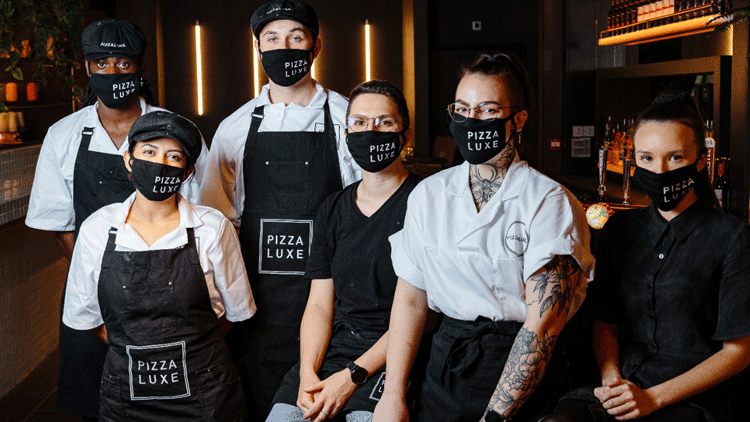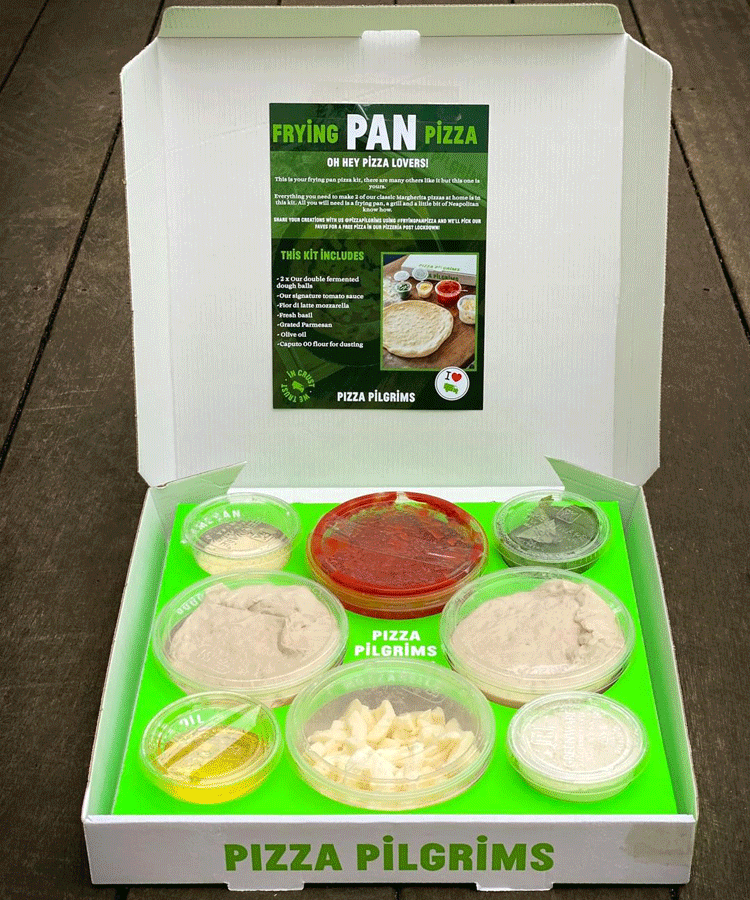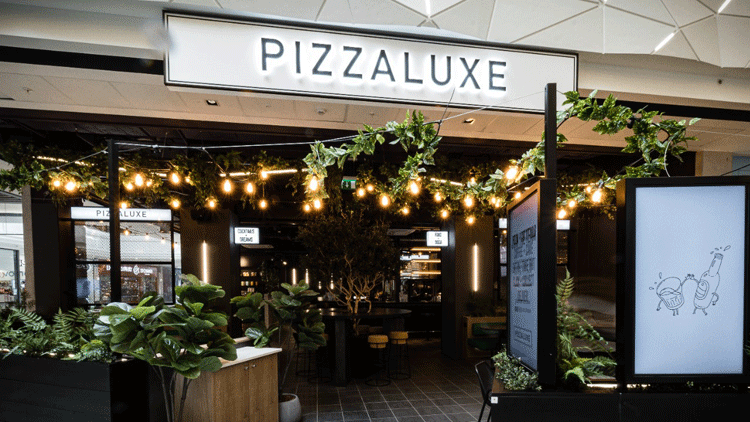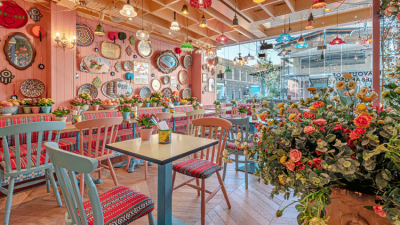PROMOTION
Thom Elliot and Paul Goodale talk to NatWest about getting back to business

In March 2020 Pizza Pilgrims founders Thom and James Elliot found themselves in the unenviable position of running a medium size restaurant business with no obvious means of generating any revenue at all. The arrival of the first national lockdown had seen the entirety of their then 14-strong estate shuttered and there was - at that point, at least - an unsettling lack of clarity around Government support and how landlords would react to businesses being unable to pay their rent.
“It wasn’t a nice feeling at all,” recalls Thom Elliot. “It was the first time in 10 years we didn’t have any pizza ovens going. James came up with the idea of selling pizza ingredients through the post. I thought he was insane.”
But it being lockdown there wasn’t much else to do, so the brothers tested the idea by sending pizza making kits out to friends. Encouraged by positive feedback, the pair produced 50 units and marketed them on Instagram. The first batch of Pizza In The Posts sold out in 20 seconds, at which point the brothers realised they might be onto something.
“By the second and third lockdown we were regularly doing over 10,000 kits a week,” continues Elliot. “It literally got us through the pandemic. We were profitable in February, March and April 2021 despite all our restaurants being closed for eat in.”
Boxing clever: Pizza Pilgrims' Pizza In The Post kit
Thinking outside the pizza box
The closure of leisure and non-essential retail during periods of national lockdown necessitated a shift towards online for many restaurant businesses. Consumers were faced with an entirely new customer journey, ordering products online that they would traditionally purchase at a physical store, with a new wave of shoppers breaking through the typical barriers of setting up online accounts, entering payment details and overcoming issues of trust. NatWest’s research found that almost half (46%) of consumers completed a new online purchase that they previously only ever purchased in-store during the pandemic.
In the case of restaurants, this led to the creation of a completely new ‘makeaways’ market, which for PizzaPilgrims and many other casual dining brands sat alongside the more traditional takeaway and delivery market.
Moving into traditional delivery
With two units trading when the pandemic hit, fellow branded pizza business PizzaLuxe didn’t have the scale and reach to pivot to makeaways, but it reopened quicker than most to service the booming lockdown delivery market.
“The timing of lockdown was actually quite fortunate for us because we completed a venture capital deal in February. As the ink was drying on the deal the world changed completely,” says founder Paul Goodale. “One of our two sites was in an airport, so that was a no go. But I took the view that if you’re not trading then you haven’t really got a business, so I reopened our inaugural site in Leeds city centre for delivery during the first lockdown.”
Such was the delivery offer’s success, Goodale took on a dark kitchen site in the Leeds suburb of Headingley in order to get closer to his key customers. Goodale has also taken advantage of the high availability of restaurant sites and more realistic premiums and rents that the pandemic has brought about. A third PizzaLuxe recently opened in Manchester Arndale and more sites are in the pipeline, with PizzaLuxe likely to look to explore opportunities at service stations.
“Happily our new backers have been supportive and understanding. They are not asking why we have not signed any airport franchise deals, which was a core part of our growth strategy,” he says. Pizza Pilgrims has also taken advantage of softer property costs to launch a further three sites, bringing its total number of restaurants to 17.
Upper crust: PizzaLuxe's original site at Trinity Leeds
A permanent change?
Both pizza businesses have done a good job of weathering the Covid-19 storm and in doing so have developed new strings to their respective bows. The big question now is one that faces many hospitality businesses - to what extent are these shifts in consumer behaviour going to be permanent?
Interestingly, according to NatWest’s Retail Outlook just under a third (32% of consumers) believe their spending habits will change permanently as a direct result of the pandemic. The report goes on to point out that changes to spending habits will depend on the product category and consumer group in question.
Unsurprisingly, sales of Pizza In The Post kits aren’t what they were in the heady days of lockdown, but it remains an important part of the business. “Typically we turn over £30,000 a week. We believe it still has huge potential,” says Elliot, who is exploring ways to integrate Pizza In The Post into the Pizza Pilgrims restaurant experience - for example giving customers the option to send a kit to a mate that’s not there - and is also considering following the likes of Pret a Manger and Leon and launching a subscription service.
Quite what will happen to the makeaway market and wider delivery market is unclear. While for some businesses it will likely fade away, others are viewing is as an important new revenue stream and a means to expand their brand by connecting with customers that aren’t in venue.
What is unquestionable is that digital will play an even bigger role for hospitality businesses going forwards, whether allowing customers to quickly and easily order makeaways via Instagram, capturing customer details at the point of booking a table, facilitating safe mobile ordering in venue or securing detailed feedback at the end of a restaurant visit.
NatWest also predicts that successful retailers and leisure brands will use more sophisticated techniques to assess the quality and value of physical interactions in store and in restaurants. This will include more Wi-Fi, video analytics and AI-powered insights.
Restaurants doing what they do best
While all this talk of new markets and technology is exciting, Thom and Goodale are clear that restaurants should not lose sight of their primary function: to bring people together for a good time.
“I believe the pandemic has permanently changed our customer’s relationship with us,” says Goodale. “Everyone now realises that restaurants and pubs are important for their mental health and the overall quality of their existence.”
NatWest head of retail and leisure David Scott agrees. “People have missed going out and socialising and being able to do the things they took for granted pre-pandemic,” he says. “We’re looking at a fantastic uplift for hospitality and the wider leisure sector in the short term. As the industry recovers, agility and positioning yourself as fit for the future is key, together with the acceptance that recovery will be different across the industry.”
















